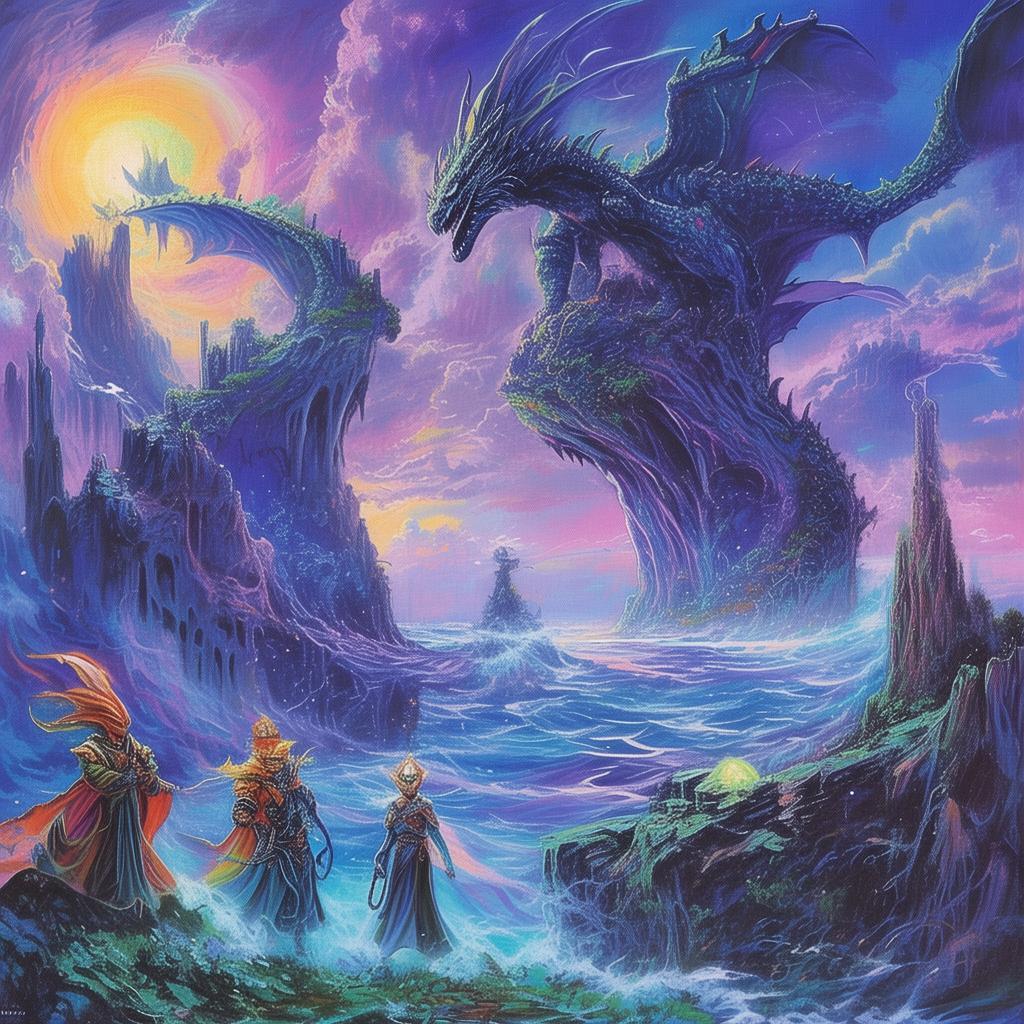The Puppeteer's Curse: The Mango's Melancholy
In the heart of an ancient forest shrouded in perpetual twilight, there stood a mango tree whose branches whispered secrets in the wind. It was said that the tree, known as the Mango's Melancholy, harbored the spirits of those who had dared to cross the line between life and death. Its fruit, a deep shade of crimson, was rumored to hold the power to grant one wish, but at a terrible price.
Amara, a young artist with a talent for life-like puppetry, had always been fascinated by the legends of the Mango's Melancholy. Her grandmother, a talesweeper of old, had often spun stories of the cursed puppeteer who had once been the guardian of the tree. According to the tales, the puppeteer had become so obsessed with the art of manipulating strings that he had forgotten the very essence of human life, ultimately cursing himself to an eternal dance of dolls and shadows.
One moonless night, Amara found herself wandering the forest, her mind filled with thoughts of her grandmother's tales. She stumbled upon the Mango's Melancholy, its gnarled branches swaying ominously in the darkness. The tree seemed to beckon her closer, and without realizing it, she reached out and plucked a mango from its bough.
The fruit was cool and firm, and as Amara bit into it, a wave of dizziness washed over her. She felt as though she were falling into a dream, a dream filled with strings and shadows. She saw the puppeteer, a figure draped in rags, his eyes hollow and soulless, pulling the strings of his creations with a cold, calculating hand.
The puppeteer spoke to her, his voice a hollow echo that seemed to resonate in her very bones. "You have chosen to pluck the fruit of my curse," he said. "What wish do you seek?"
Amara, her mind reeling from the encounter, knew she must be brave. She closed her eyes and whispered, "I wish to understand the true cost of my art."
The puppeteer's eyes widened, and for a moment, Amara thought she saw a flicker of humanity in them. "Very well," he said. "You shall see the consequences of your wish."
As the vision faded, Amara found herself back in the forest, but the world around her had changed. The trees were now twisted and gnarled, their branches like the fingers of an angry god. She saw the puppets, each one more lifelike than the last, moving of their own accord, their eyes filled with a haunting intelligence.
Amara's own hands began to twitch, and she realized that she, too, was becoming a puppeteer, her own life controlled by strings she could not see. She felt a pang of regret, but it was too late. She was trapped in a dance of shadows, her every action dictated by the curse.
Desperate to break free, Amara sought out the old talesweeper, hoping she could unravel the mystery of the Mango's Melancholy and lift the curse. The talesweeper, an ancient woman with eyes that seemed to see into the depths of time, listened to Amara's tale with a mixture of sorrow and understanding.
"You must face the puppeteer once more," she said. "But this time, you must confront him with the truth of your heart."
With renewed determination, Amara returned to the forest, her heart heavy with the weight of her own curse. She found the puppeteer, now a figure of darkness and despair, his puppets surrounding him like a protective shield.
"You have the power to break this curse," Amara said, her voice steady despite the fear that gripped her. "But it will require more than just words. You must face the truth of your own soul."
The puppeteer looked at her, his eyes finally filled with something resembling compassion. "I have been a puppet for far too long," he said. "Thank you for freeing me."

With a gesture of his hand, the curse lifted, and Amara's hands were no longer bound by strings. She looked around, and the forest returned to its natural state, the puppets now lifeless and forgotten.
Amara knew that the Mango's Melancholy had not only freed the puppeteer but had also revealed the truth of her own art. She realized that her puppets were more than just inanimate objects; they were reflections of her own emotions and desires. From that day on, Amara approached her art with a newfound respect for the power it held, using it to tell stories of love, loss, and the human condition.
And so, the Mango's Melancholy continued to whisper its tales, but now, they were stories of redemption and the enduring power of truth.
✨ Original Statement ✨
All articles published on this website (including but not limited to text, images, videos, and other content) are original or authorized for reposting and are protected by relevant laws. Without the explicit written permission of this website, no individual or organization may copy, modify, repost, or use the content for commercial purposes.
If you need to quote or cooperate, please contact this site for authorization. We reserve the right to pursue legal responsibility for any unauthorized use.
Hereby declared.









